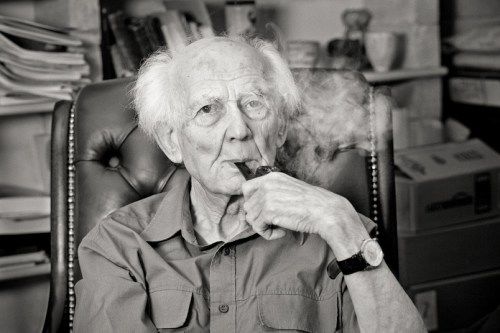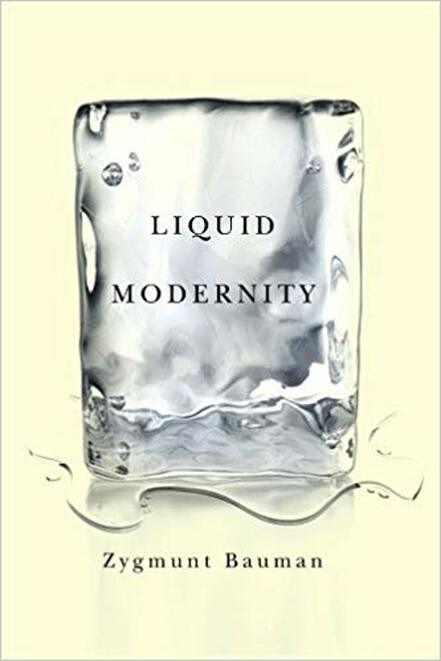Liquid Modernity
All I really want are "likes" on Facebook
so that, just for a moment, I can feel important.
in appreciation of Zygmunt Bauman (1925-2017)
|
|
From Bauman's Liquid Modernity"Forms of modern life may differ in quite a few respects – but what unites them all is precisely their fragility, temporariness, vulnerability and inclination to constant change. To ‘be modern’ means to modernize – compulsively, obsessively; not so much just ‘to be’, let alone to keep its identity intact, but forever ‘becoming’, avoiding completion, staying underdefined. Each new structure which replaces the previous one as soon as it is declared old-fashioned and past its use-by date is only another momentary settlement – acknowledged as temporary and ‘until further notice’. Being always, at any stage and at all times, ‘post-something’ is also an undetachable feature of modernity. As time flows on, ‘modernity’ changes its forms in the manner of the legendary Proteus . . . What was some time ago dubbed (erroneously) 'post-modernity' and what I've chosen to call, more to the point, 'liquid modernity', is the growing conviction that change is the only permanence, and uncertainty the only certainty. A hundred years ago 'to be modern' meant to chase 'the final state of perfection' -- now it means an infinity of improvement, with no 'final state' in sight and none desired. (Zygmunt Bauman, Kindle Editition, 82) from Social Theory RewiredIn the 1980s and 1990s, Bauman was known as a key theorist of postmodernity. While many theorists of the postmodern condition argued that it signified a radical break with modern society, Bauman contended that modernity had always been characterized by an ambivalent, “dual” nature. On the one hand, Bauman saw modern society as being largely characterized by a need for order—a need to domesticate, categorize, and rationalize the world so it would be controllable, predictable, and understandable. It is this ordering, rationalizing tendency that Max Weber saw as the characteristic force of modernization. But, on the other hand, modernity was also always characterized by radical change, by a constant overthrowing of tradition and traditional forms of economy, culture, and relationship—“all that is solid melts into air,” as Marx characterized this aspect of modern society. For Bauman, postmodernity is the result of modernity’s failure to rationalize the world and the amplification of its capacity for constant change. |



